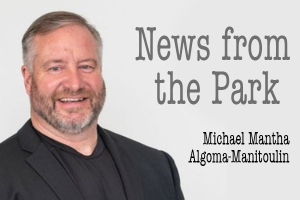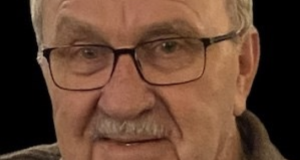 With the start of the legislative session, I am eager to bring my Private Member’s Bill, the Northern Health Travel Grant Advisory Committee Act (Bill 13), to the assembly on February 22nd. Readers will already know just how often we get calls from constituents regarding the grant, but more generally access to healthcare across the riding.
With the start of the legislative session, I am eager to bring my Private Member’s Bill, the Northern Health Travel Grant Advisory Committee Act (Bill 13), to the assembly on February 22nd. Readers will already know just how often we get calls from constituents regarding the grant, but more generally access to healthcare across the riding.
With every new session I bring the stories of constituents from across Algoma-Manitoulin to the halls of Queen’s Park and put them before lawmakers. Where party lines and elections can make parliament lose sight, I find that hearing the testimony of those who deal daily with government policy is often the most compelling argument for meaningful change.
I want share one of those stories with you today; as couple Richard and Jane from Manitouwadge battle with cancer, they were referred to essential lifesaving treatment at Sunnybrooke Hospital in Toronto. Treatment consisted of two-hour sessions, five days a week, for six weeks. To give you some idea of the distance involved, we’re looking at over 1000 kilometres and nearly twelve hours of travel one way. While Jane and Richard filed for accommodation expenses for those six weeks, they were shocked to find out they had been reimbursed for less than 15% of their actual costs for accommodation. As you can imagine, a 6 week stay in Toronto doesn’t come cheap.
Simply put, given the Northern Health Travel Grant’s guidelines, Richard and Jane were expected to return home on weekends when Richard would otherwise be resting after a week of exhausting treatment. In this case, the grant failed in its purpose, leaving Jane and Richard not just with the emotional and physical burden of illness, but now a new heavy financial burden for accessing the care they are entitled to. No one should be expected to drive over 24 hours in the span of a weekend, while undergoing essential lifesaving treatment.
Bill 13 represents an opportunity for meaningful change. By establishing a committee comprised of residents who directly rely on the Northern Health Travel Grant and healthcare professionals from the North, we can ensure that policies and programs are grounded in the lived experiences of those most affected. This committee will serve as a crucial link between the needs of Northern communities and the policymakers in Toronto, offering insights and recommendations that reflect the realities of Northern healthcare.
While the Ford Government emphasizes its commitment to fiscal responsibility, it has simultaneously overlooked the cost savings associated with investing in healthcare infrastructure and services that cater to the specific demands of Northern Ontario. As a whole, Ontario is fortunate to have some of the best specialists in the world for complex rare illness and disease. We can’t expect every hospital across the province to contain Radiological Neurosurgeons or Pediatric Cardiologists on top of their associated departments and labs. There will always be a need for Northerners to travel for care on occasion, and they shouldn’t have to risk insolvency to do it.
When it comes to typical care, like dialysis, routine surgery, or injections there is no reason that Ontarians should find themselves on the highway for hours at a time just to access the essentials, especially without fair reimbursement. Funding for our northern hospitals remains static at just a 2% annual increase, rising costs, new mandates, and privatization quickly eat away at the number and level of services our hospitals can provide. While we understand that with the privilege of natural beauty and quiet landscapes comes some challenges, the people of Northern Ontario shouldn’t have to risk going without the essential care that used to be accessible in the North.
The path forward requires a collaborative approach, one that acknowledges the needs of all Ontarians and respects the expertise of Northern healthcare professionals and patients alike. This means not only rethinking its stance on healthcare privatization but also committing to a sustainable funding model that supports the expansion and enhancement of services in the North.
The consequences of inaction are felt most by those who are compelled to travel for care. The Ford Government must recognize that the true measure of good governance is not found in budget surpluses but in the health and well-being of its citizens, regardless of their postal code. Investing in healthcare, particularly in underserved regions like Northern Ontario, is not only a moral obligation but a prerequisite for a healthy, thriving province.
As the MPP for Algoma-Manitoulin, I pledge to continue advocating for the needs of my constituents and to push for policy that ensures no one is left behind in our healthcare system. Healthcare is a right, and not a privilege.
That’s why I’m calling on my colleagues at Queen’s Park to vote in favor of Bill C13 on February 22nd, and invite all northerners to join me in calling on this government to do the right thing and invest in hard-earned public healthcare.
As always, you can reach my office regarding these issues or any other provincial matter by email at [email protected] or toll-free at 1-800-831-1899.
- MPP Michael Mantha Raises Concerns about Changes to NOHFC - January 27, 2025
- A Good Idea is a Good Idea –No Matter Where it Comes From - January 27, 2025
- Ford doit écouter, même si le message vient de l’autre côté de l’allée, et rendre nos routes plus sûres - January 27, 2025
 Wawa-news.com Local and Regional News
Wawa-news.com Local and Regional News


